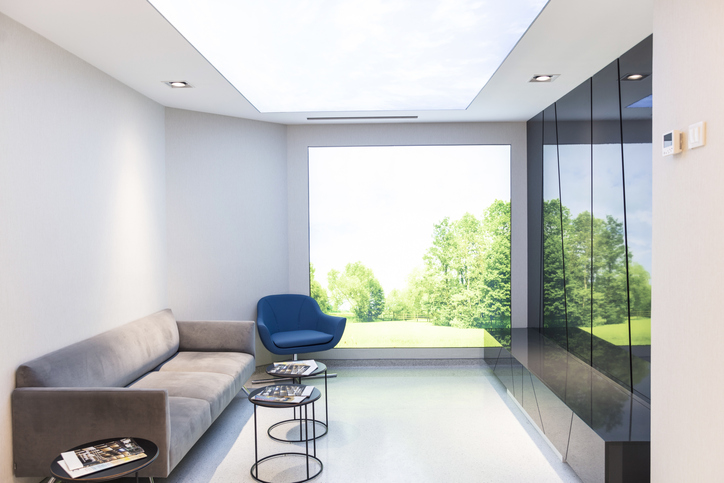Botox is also a central part of modern cosmetic medicine and is used for a variety of purposes, including wrinkles and relaxation of facial muscles.
On the other hand, alcohol is an essential part of socializing, but it may need to be combined with Botox treatments with caution. Is drinking alcohol before or after Botox treatment a no-no? Or is it not a problem? Here, we will unravel the truth about Botox and alcohol consumption and explain it so that you can receive the best care possible.

Graduated from the Faculty of Medicine, National Kumamoto University. After serving as the director of major beauty clinics in Japan, etc., he opened Aladdin Aesthetic Clinic in 2023. He is a professional in aesthetic medicine with a doctorate in anti-aging research and many years of experience. With the motto of "Toward the realization of cosmetic medicine without lies," he aims to be the "Only One" together with his patients.
- Effects of Botox and its role
- How alcohol affects the body and beauty
- How does alcohol affect the effects of Botox?
- Frequently Asked Questions (Q&A) about Botox and Alcohol
- Q1: Is it safe to drink alcohol immediately before Botox injections?
- Q2: Is it safe to drink alcohol immediately after Botox injections?
- Q3. how long should I avoid alcohol to maximize the effects of Botox?
- Q4. does heavy alcohol consumption affect the duration of Botox?
- Q5. Is there any possibility of side effects if I drink alcohol after Botox injections?
- Q6: Is it completely prohibited to drink alcohol before and after Botox treatment?
- summary
Effects of Botox and its role

Understanding more about what Botox is and its effects first is a good point to consider for your own lifestyle when considering this treatment.
Botox is a neurotoxin produced from the bacterium botulinum that temporarily restricts muscle movement. The name Botox is actually a trade name; the actual ingredient is botulinum toxin type A. It blocks certain nerve signals and thus prevents muscle contraction.
Botox has a variety of effects by temporarily restricting the movement of certain muscles. From a cosmetic standpoint, the most common use of Botox is to reduce facial wrinkles and expression lines. It is particularly effective in treating wrinkles caused by the movement of facial muscles, such as those between the eyebrows, horizontal lines on the forehead, and laugh lines around the eyes (crow's feet).
Other uses of Botox are not limited to the aesthetic field. It is widely used in the medical field as well. In fact, it plays a broad role since it is also used to treat migraine headaches, excessive sweating (hyperhidrosis), muscle spasms and involuntary movements.
How alcohol affects the body and beauty

The premise is that the impact of alcohol on beauty, especially on the skin, is very important, and understanding this is fundamental when considering the interaction of Botox and alcohol.
Alcohol and Skin Health
Alcohol has a variety of effects on the human body and also has a direct impact on the condition of the skin. While moderate consumption is not a problem, excessive alcohol consumption can be fatal to skin health.
| risk | Description. |
|---|---|
| dehydration | Diuretic activity. Dryness, wrinkles and fine lines may become more noticeable. |
| inflammation | May cause inflammatory reactions. May cause exacerbation of inflammatory skin diseases. |
| Nutrient depletion | May interfere with the absorption and metabolism of nutrients important to the skin. May accelerate skin aging. |
| vasodilation | May cause skin redness. May cause prominent erythema on the face. |
First, alcohol is a diuretic and causes the body to drain water. This can dehydrate the entire body, especially the skin. When the skin is dehydrated, it can become dry and wrinkles and fine lines may become more noticeable.
Alcohol can also cause an inflammatory reaction during the process of detoxification in the body. This can cause redness, swelling, and exacerbation of inflammatory skin conditions.
As an additional nutrient depletion, alcohol can interfere with the absorption and metabolism of nutrients important to the skin, such as vitamin A. Since vitamin A plays an important role in skin regeneration, repair, and antioxidant activity, its depletion may accelerate skin aging.
Finally, alcohol can dilate blood vessels and cause redness of the skin. Over time, these blood vessels may permanently dilate, causing prominent erythema on the face.
Alcohol and Cosmetic Treatments
Alcohol consumption may also affect the outcome of cosmetic treatments. For example, excessive alcohol consumption prior to surgery may increase the risk of bleeding. Alcohol may also decrease immune system function and delay wound healing. Therefore, it is important for anyone planning to undergo cosmetic treatments or surgery to consult a professional regarding alcohol consumption before and after such procedures.
Balancing Beauty and Alcohol Consumption
It is important to understand the relationship between alcohol consumption and beauty and to maintain a balanced lifestyle. Not all alcohol is bad for the skin. In fact, studies have shown that moderate wine consumption is a source of antioxidants. The key is to consume in moderation and avoid excessive consumption.
In addition, after consuming alcohol, keeping the skin well hydrated and eating a nutritious diet can help compensate for the dehydration and nutrient deficiencies that alcohol can cause.
This background information is important to better understand the interaction between Botox and alcohol. Understanding the effects of alcohol on the skin and implementing it appropriately in Botox treatments will ensure the best treatment results.
How does alcohol affect the effects of Botox?

As a general guideline widely recognized in the cosmetic medical community, it is recommended that alcohol consumption be avoided before and after Botox injections.Alcohol consumption prior to Botox injections may increase swelling and bleeding at the injection site. This is because alcohol tends to dilate blood vessels and increase blood flow. Alcohol also has a blood thinning effect, which may increase the risk of bleeding.
On the other hand, alcohol consumption immediately after Botox injections may increase swelling and pain at the injection site. It may also diminish the effects of Botox, according to some experts. This is because alcohol may accelerate the process of eliminating toxins from the body, thus shortening the duration of Botox's action.
For these reasons, it is recommended that alcohol consumption be avoided before and after Botox treatments. However, this does not mean that alcohol should be avoided forever. Rather, alcohol should be avoided for a few days before and after treatment and then kept to moderate amounts. It is also important to maintain a healthy lifestyle, get a good night's sleep, and eat a nutritionally balanced diet in order to maximize the benefits of Botox treatment.
Care after Botox injection
Post Botox injection care is an important step in maximizing the results. This includes proper rest, eating and drinking, and how to consume alcohol.
As mentioned earlier, it is generally recommended to avoid alcohol immediately after Botox injections, at least for the first day. Alcohol dilates blood vessels and may increase swelling and bleeding.
It is also important to maintain a proper lifestyle to maximize the effects of Botox. This includes healthy eating and drinking, good sleep, and moderate exercise.
Frequently Asked Questions (Q&A) about Botox and Alcohol
Below are some frequently asked questions and answers about Botox and alcohol. We hope you find them helpful in preparing for and considering Botox treatment.
Q1: Is it safe to drink alcohol immediately before Botox injections?
A1. consuming alcohol immediately prior to Botox injections may thin the blood and increase the risk of bleeding or bruising at the injection site. Therefore, it is usually recommended to avoid alcohol for at least 24 hours prior to injection.
Q2: Is it safe to drink alcohol immediately after Botox injections?
A2. Consuming alcohol immediately after Botox injections may increase the risk of swelling and inflammation. Alcohol also increases blood flow, which may cause the Botox to migrate away from the injection site and affect areas where it is not expected. So we recommend avoiding alcohol for 24 hours after treatment.
Q3. how long should I avoid alcohol to maximize the effects of Botox?
A3. In order to maximize the effects of Botox, it is usually recommended to avoid alcohol for 24 hours before and after treatment, and to consume moderate amounts thereafter. However, since this depends on the individual's constitution and lifestyle, we recommend that specific advice be discussed during the consultation.
Q4. does heavy alcohol consumption affect the duration of Botox?
A4. Excessive alcohol consumption may cause the effects of Botox to wear off faster because alcohol increases blood flow. Alcohol may also dehydrate the body and dry out the skin. This may decrease the effectiveness of Botox.
Q5. Is there any possibility of side effects if I drink alcohol after Botox injections?
A5. consuming alcohol immediately after Botox injections may increase the risk of swelling, inflammation, and bruising. Alcohol also increases blood flow, which may cause the Botox to migrate away from the injection site and affect areas where it is not expected.
Q6: Is it completely prohibited to drink alcohol before and after Botox treatment?
A6. Drinking alcohol before and after Botox injections is not necessarily prohibited. However, in order to maximize the effects of treatment and minimize side effects, it is generally recommended that alcohol be avoided for 24 hours before and after treatment and consumed in moderate amounts thereafter. Specific guidelines, however, depend on individual circumstances and should be discussed in counseling.
summary
The most important thing to understand about the relationship between Botox and alcohol is to understand your own body and make your own health and beauty your top priority. It is best to follow your professional's advice on alcohol consumption before and after receiving Botox injections.
Understanding the effects of Botox on your body and taking proper care of it will help you maximize the benefits of Botox. Your beauty is in your own hands. With the proper information and care, you can confidently proceed with the care of your own skin.
At Aladdin Aesthetic Clinic, based on our many years of experience in cosmetic medicine and cosmetic dermatology and the knowledge of our doctoral degree, we provide counseling that aims to be "only one", offering the best treatment for each person we meet. We offer only the necessary treatments without any unnecessary information or suggestions.
Feel free to use our official LINE account for 24-hour counseling and reservations. Please feel free to contact us for free counseling for the first time or if you have any concerns.





